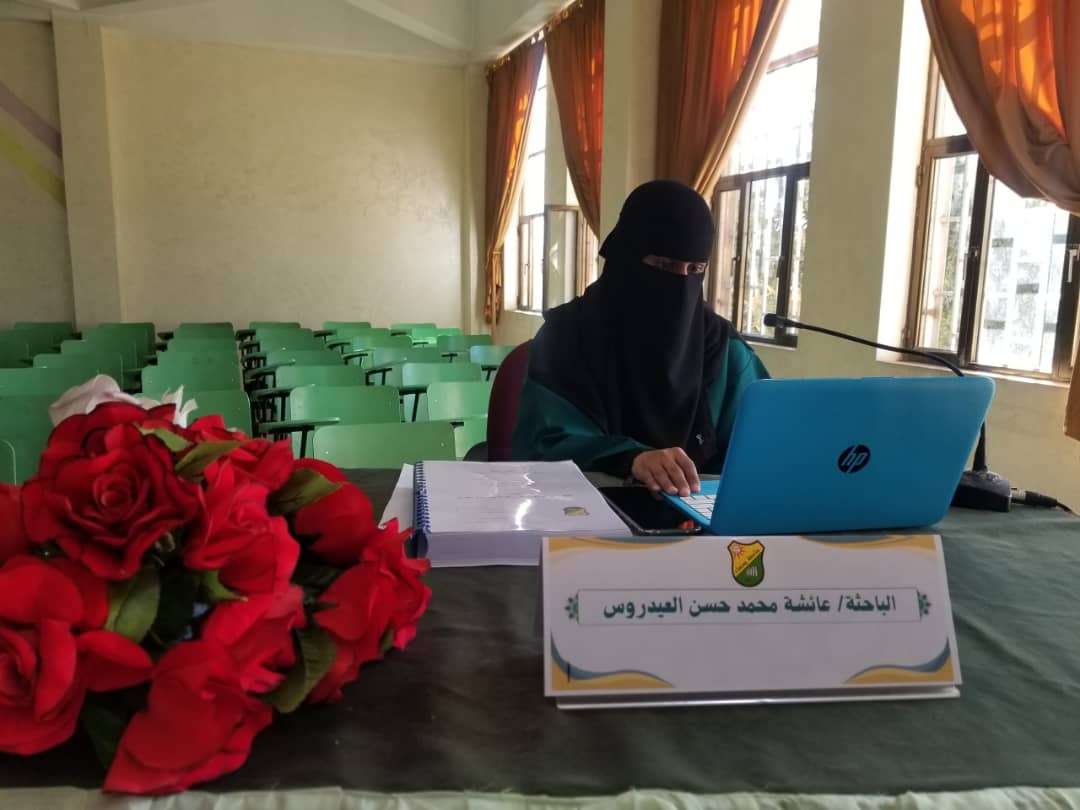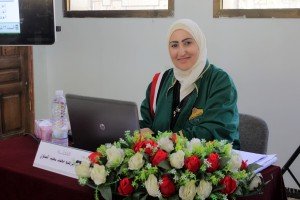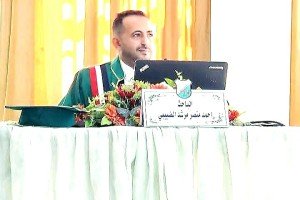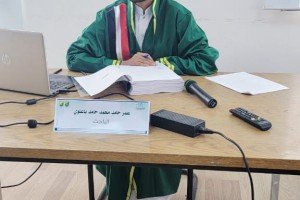Public PhD Viva-Voce Examination of Ms. Aisha Mohammad Hassan Al-Eidaroos, from the Department of Islamic Studies, Faculty of Arts & Humanities – Sana’a University

Public PhD Viva-Voce Examination of Ms. Aisha Mohammad Hassan Al-Eidaroos, from the Department of Islamic Studies, Faculty of Arts & Humanities – Sana’a University
Ms. Aisha Mohammad Hassan Al-Eidaroos has successfully awarded her PhD Degree from the Department of Islamic Studies, majoring in Quranic Interpretation(Tafsir) and Sciences, at the Faculty of Arts & Humanities, Sana’a University. Her dissertation, titled “The Impact of the Multiple Aspects of Parsing in Jurisprudential Rulings on the Interpretation of Al-Bahr Al-Muhit,” was defended on Monday, 2 Jumada Al-Awwal, corresponding to April 11, 2024.
The Viva-Voce Committee, which was formed based on a resolution issued by the Post-Graduate Studies and Scientific Research Council, consisted of the following::
1. Prof. Saeed Mohammad Abdul Salam Al-Haddad, External Examiner, Taiz University, Chair.
2. Prof. Huda Ali Yahya Al-Imad, Main Supervisor, Sana’a University, Member.
3. Prof. Kawthar Hamoud Mohammad Al-Mikhlafi, Internal Examiner, Sana’a University, Member
The primary objective of dissertation was to explore the influence of varying syntactical structures on the derivation of meanings and legal rulings from verses pertaining to jurisprudence, specifically through an analysis of Abu Hayyan Al-Andalusi’s interpretation in Al-Bahr Al-Muhit. The research posited that discrepancies among jurists regarding certain jurisprudential rulings could be attributed to differences in syntax.
The findings of the dissertation revealed several significant insights, including the assertion that the Holy Quran represents the most eloquent form of language, serving as the foundational basis for linguistic and grammatical principles. It was emphasized that the Quran constitutes the primary source of linguistic comprehension prior to engaging with poetry or other forms of Arabic discourse. Furthermore, the study highlighted a profound interconnection between jurisprudential rulings and grammatical structures, indicating that jurists must possess a solid understanding of grammar to effectively interpret Sharia texts and derive their meanings. Additionally, it was concluded that variations in jurisprudential rulings arising from diverse grammatical interpretations do not necessarily imply conflicting conclusions; rather, multiple interpretations can coexist without contradiction.
In her dissertation, Ms. Al-Eidaroos offered several recommendations, including: the adoption of Quranic language as a standard for regulating Arabic grammatical rules and rectifying certain inaccuracies; investigating the implications of differing jurisprudential rulings stemming from variances in grammatical structures within the Quran and Sunnah; examining how the multiplicity of grammatical aspects influences the rhetorical significance of Quranic texts; and studying the application of the principle of accommodating all meanings through diverse grammatical interpretations within the Holy Quran.
The Viva-Voce was attended by several academics, researchers, students, and several colleagues and family members of the researcher



A video from the Viva-Voce



